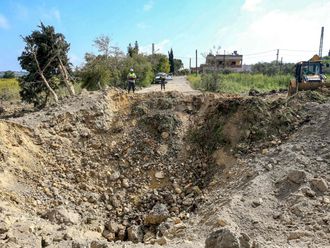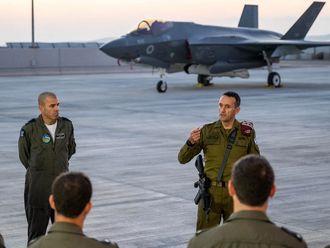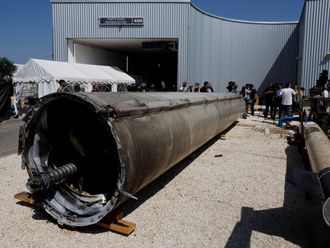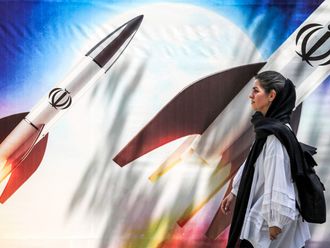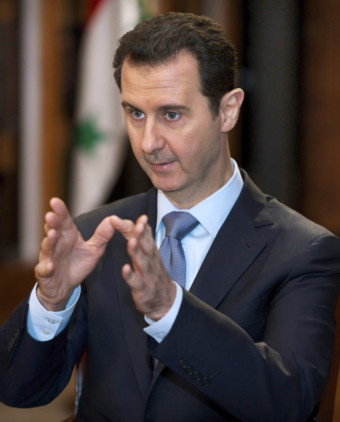
Beirut: President Bashar Al Assad on his inauguration on Thursday is expected to play the role of “victor” while trying to win over war-weary Syrians and those fearful of Islamist militants.
Analysts say Al Assad, who was swept back to power in a June 3 election slammed as a “farce” by the opposition, will also try to convince the West his regime is a bulwark against the radical Islamic State of Iraq and the Levant (Isil), which is sowing terror in Syria and Iraq. “Al Assad wants to consolidate his image as the victor” in the regime’s bid to crush a three-year rebellion, said Khattar Abu Diab, Paris-Sud University professor of international relations.
The inauguration “will be a show of defiance against countries that demanded his ouster” ever since the outbreak of a popular revolt in March 2011, Abu Diab told AFP.
Three years on, according to Bassam Abu Abdullah, an expert close to the regime in Damascus, the question of Al Assad’s ouster is “no longer on the cards”.
Abu Abdullah, who directs the Damascus Centre for Strategic Studies, told AFP: “Even the Americans, the Saudis and the Qataris [who back the revolt] are no longer calling for that.”
A veteran opposition figure and member of the exiled National Coalition, Samir Nashar, said: “Bashar Al Assad continues to claim he is a legitimate president despite the victims and the massacres ... He is holding on to a semblance of legitimacy.
“His message is clear: he will not leave power at any price.”
For the past year, the anti-Al Assad rebellion has suffered a string of defeats on the battlefield.
Opposition fighters lost control of bastions in the heart of Homs city, Damascus province and east of Aleppo city in the north.
Regime troops have made advances around Aleppo in recent weeks, pressing a bid to besiege the rebels.
The regime controls most of the coast, though the rebels have the upper hand in Idlib in northwest Syria and Daraa in the south, dubbed the “cradle of the revolution” that later morphed into a civil war.
The mainstream rebels, however, have also faced defeats in eastern Syria, from where they have been expelled by Isil, which last month proclaimed a “caliphate” straddling Syria and Iraq.
Damascus, meanwhile, has been heavily reliant on a steady flow of fighters from Lebanon’s Shiite militant group Hezbollah and the unwavering support of allies Iran and Russia.
The rebels, in contrast, say the have received practically no military aid from the West.
Karim Bitar, director of the Paris-based International and Strategic Relations Institute, said Al Assad will capitalise on fears of the Islamists while pursuing his own offensive against the rebels.
“He hopes the Isil abuses will help him win over a population exhausted by three years of war,” Bitar told AFP.
Al Assad will “continue to take advantage of the West’s obsession with Islamism and try to portray himself as a partner in the fight against Isil.”
At the same time, he will “press his counter-insurgency plan, which aims to take over major highways and big cities, while abandoning... the east of the country.”
But analysts say Al Assad faces an uphill task on the political front.
“Too much blood has been spilled... Regardless of the military successes, [Al Assad] will never be able to restore his legitimacy in the eyes of much of the population,” said Bitar.
“So what we’re really talking about is a pyrrhic victory, won on the ruins of a country that will not accept the return of the status quo ante.”


